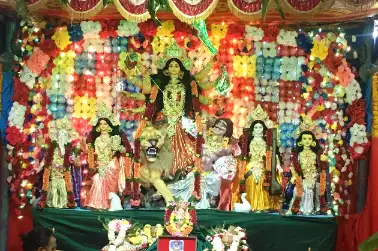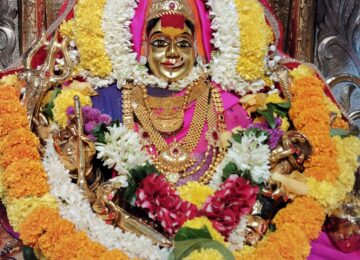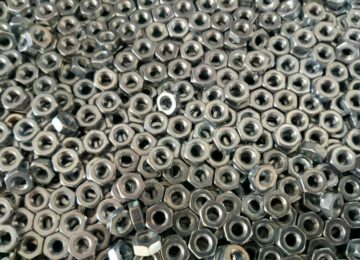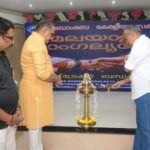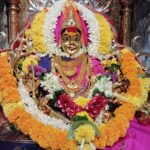K A Viswanathan
Mumbai: The nine-day Navaratri is being celebrated from with pomp and devotion in temples and houses in Mumbai. The South Indian housewives celebrate this by arranging dolls in steps which are in odd numbers as five, seven or nine and keep
Dolls of Gods and Goddesses. Generally, mothers hand over these dolls to their daughters. Some dolls are preserved in the family for generations. The dolls are dusted, cleaned and placed on the Golu Padi (steps) a day before the festival begins. The steps are usually makeshift benches or wooden planks draped with a cloth. It's a practice to have the wooden dolls named Marapaachi, a traditional couple symbolizing fertility. It is a custom to add a few new dolls every year.
During the nine days, the ladies and children visit their friends and relatives houses and invite them for their house Golu. The traditional thamboolam is given along with a blouse piece, a small mirror, a comb, coconut, turmeric powder, betel leaves and a
kumkum container along with eatery called Sundal, Keeping Kalasam in front is a must. Kalasam is an auspicious set up of brass pot with rice, dal covered with mango leaves & coconut on top of it.
The Ninth day is celebrated as Saraswati Pooja when children are initiated into the first stage of learning on this auspicious day and the tenth day is Vijayadasami (day of Victory).

Several temples in Matunga like Sri Sankara mattham and Sri South Indian Bhajana Samaj celebrate the nine days with varieties of Homams like Chandi Homam, Durga Mantra Homam, Ganapathy Homam to appease Gods and Goddesses for universal peace
and prosperity. Sumangali (married ladies) poojas are also conducted in some temples.
Another temple in Matunga which is owned by a Maharashtrian trust called Marubai Gavdevi temple keep typical five steps Golu for the last 18 years and invite ladies from different communities to sing songs on all nine days. “ It is the only Maharashtrian temple in Maharashtra which celebrates all South Indian festivals “, says Anil Gavand managing trustee of the 350-year-old temple where the goddess is a Swayamboo. (came on its own). During the festivals, they conduct music and bhajans by various mandals in Mumbai.
Besides this the Gujarathis and other communities arrange Garba dance late evening with bands and music. This is the occasion when all communities join hands to enjoy the festival.

